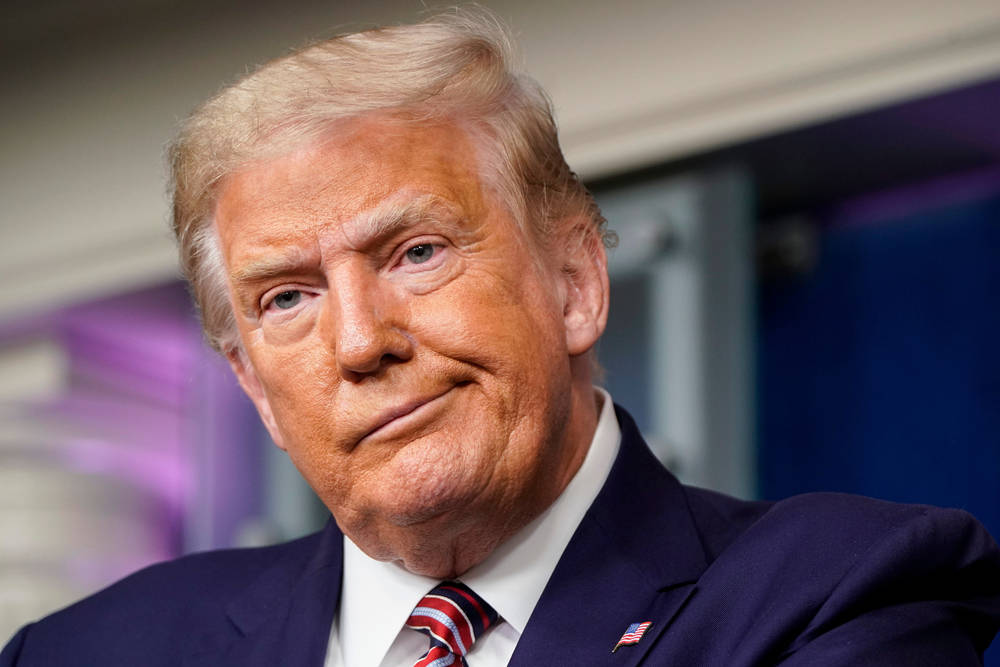Trump Says US Should Kill CHIPS Act, Use The Cash To Cut Debt

Updated Donald Trump has renewed his call for CHIPS Act funding to be cancelled, and suggests any remaining money be set against national debt.
In a rambling speech to a joint session of Congress on Tuesday, the US President reviewed many of the events that have already taken place under his administration, including a deal this week with Taiwanese semiconductor contract manufacturer TSMC to invest an extra $100 billion on expanded operations in Arizona.
"And we are not giving them any money," Trump claimed.
With regard to the semiconductor subsidy scheme, he said: "Your CHIPS Act is a horrible, horrible thing. We give hundreds of billions of dollars and it doesn't mean a thing. They take our money and they don't spend it."
"You should get rid of the CHIP Act (sic) and whatever's left over, Mr Speaker, you should use it to reduce debt. Or any other reason you want to," he added.
This isn't the first time a Republican has suggested getting rid of the multi-billion funding that was set aside as a cornerstone of the Biden administration's plan to revitalize America's science and chip sectors as well as on-shore manufacturing.
Last year, House Speaker Mike Johnson suggested his party would move to repeal the $280 billion CHIPS and Science Act funding bill, of which the $53 billion CHIPS Act is part of, if his party secured a majority in Congress. Johnson soon walked back on his remarks, especially as other Republicans such as Brandon Williams, then a congressman for New York, expressed their support for the legislation as it would bring investment to his state.
Pulling the funding requires Congress to revisit the law, and is likely to face similar pushback from members of congress representing areas where new fabrication plants are set to be built. Much of what Trump talks about never comes to pass in any case.
However, the President has previously slammed the subsidies and just the other month made a swipe at the program with staff cuts at the federal agencies that are responsible for administration of the CHIPS and Science Act. Last month it was announced that almost 500 staff were being shed from the National Institute of Standards and Technology (NIST), including workers running the agency's $11 billion semiconductor research and development program.
What is odd is that Trump campaigned on bringing back jobs and manufacturing to America, and is now proposing doing that by cutting government support for crucial on-shore manufacturing and relying instead on the primitive threat of tariffs to encourage the purchasing of non-foreign chips.
The Biden administration hurried to finalize some of the funding it wanted to disburse to chipmakers under the CHIPS Act before its term of office came to an end, including up to $7.86 billion for Intel in November and $6.1 billion for memory maker Micron in December.
According to the Guardian, TSMC had already received $1.5 billion of its promised funding before the new administration came in. We asked Intel and Micron if they had so far received any of their funds, and if any outstanding sums are at risk.
- Intel slows its roll on $28B Ohio fab expansion, pushing production to 2030s
- Trump can't quickly or easily kill the CHIPS Act, but he can fire the workers funded by it
- Trump teases 25% semiconductor tariffs that will go ‘substantially higher’
- As Trump slugs Canada, Mexico and China with tariffs, industry groups hope trade war weapon isn’t pointed at their feet
Micron detailed plans to invest $100 billion over 2 decades in a memory chip fabrication plant to be built in New York State, so the loss of its CHIPS Act cash may not affect its plans greatly.
Intel, however, had previously indicated that investing in new semiconductor plants on US soil were dependent on it getting subsidy cash. Without the funding, the Santa Clara biz would continue to build fabs in Arizona and Ohio, but the expansion would take longer, and it wouldn't be as comprehensive, former CEO Pat Gelsinger once told a US Senate Committee.
Since then, Intel has run into financial troubles and problems with its technology roadmap that have seen it delay the completion of its $28 billion Ohio facility until at least 2030. ®
Updated to add on March 6
It's now reported that Elon Musk ally and former investment banker Michael Grimes, who helped in the Tesla tycoon's takeover of Twitter, has been recruited to shake up the US Dept of Commerce office in charge of running the CHIPS Act subsidy program, starting with layoffs.
From Chip War To Cloud War: The Next Frontier In Global Tech Competition
The global chip war, characterized by intense competition among nations and corporations for supremacy in semiconductor ... Read more
The High Stakes Of Tech Regulation: Security Risks And Market Dynamics
The influence of tech giants in the global economy continues to grow, raising crucial questions about how to balance sec... Read more
The Tyranny Of Instagram Interiors: Why It's Time To Break Free From Algorithm-Driven Aesthetics
Instagram has become a dominant force in shaping interior design trends, offering a seemingly endless stream of inspirat... Read more
The Data Crunch In AI: Strategies For Sustainability
Exploring solutions to the imminent exhaustion of internet data for AI training.As the artificial intelligence (AI) indu... Read more
Google Abandons Four-Year Effort To Remove Cookies From Chrome Browser
After four years of dedicated effort, Google has decided to abandon its plan to remove third-party cookies from its Chro... Read more
LinkedIn Embraces AI And Gamification To Drive User Engagement And Revenue
In an effort to tackle slowing revenue growth and enhance user engagement, LinkedIn is turning to artificial intelligenc... Read more

